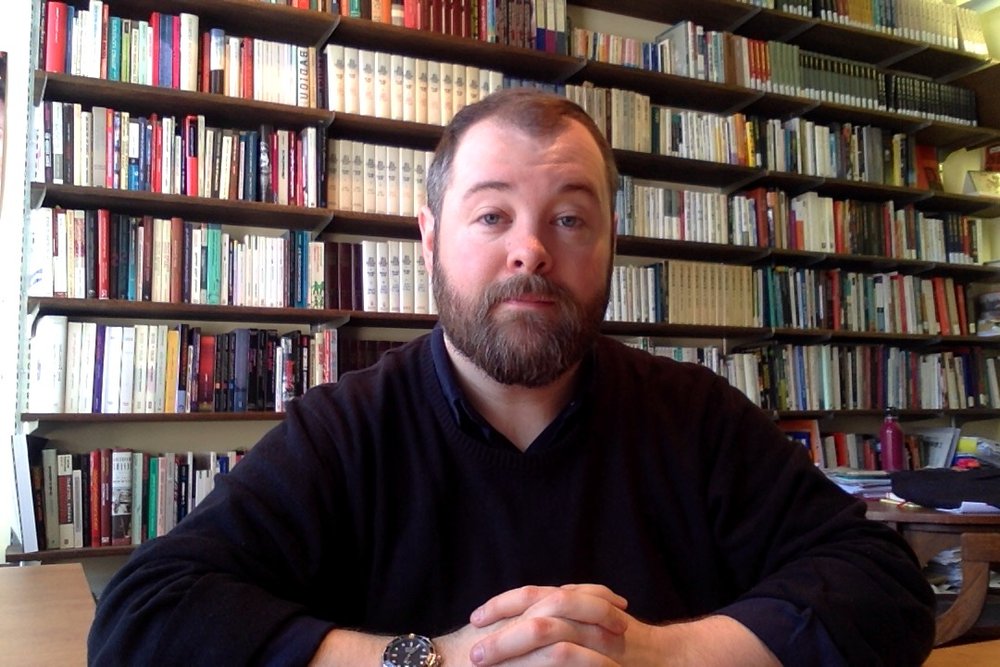Talk: Towards a Theory of Post-68 Marxism in Japan
When and Where
Speakers
Description
The Department of East Asian Studies is pleased to welcome cultural critic and author, Dr. Gavin Walker, for an upcoming live talk.
The reception history of Marx in Japan is no small matter. In fact, it is essentially impossible to give an adequate overview of one of the deepest, most prolific, and most variegated linguistic repositories of the Marxist tradition. Although it continues to remain remarkably little-known in contemporary European or North American intellectual-historical circles, it is a fact that Marxism was the dominant strand of theoretical inquiry in Japan for most of the 20th century; more pointedly, we might say, Japanese has remained perhaps the most important language for Marxist-theoretical scholarship beyond English, German, and French, yet its theoretical history remains relatively isolated within its own linguistic boundaries.
From its initial entry into the Japanese intellectual world in the late 1800s, Marxist analysis quickly came to constitute a vast and osmotic field that permeated all aspects of academic life, historical thought, forms of political organization, and ways of analyzing the social condition. If the prewar debate on Japanese capitalism — its character, its development, its mode of relation to the emergence of capitalism depicted in Capital – was centered on the relation between the historical and the logical, the postwar boom of Marxist theoretical writing tended to be split between the methodological analysis of capital itself, and the search for a philosophy of subjectivity located around the theory of alienation, and characterized by an interest in the early Marx through the moment of 1968. Karatani’s Marx: Towards the Centre of Possibility, serialized in the literary magazine Gunzō in 1974 represented a break – or rather is itself situated within a break, one might say – with the prevailing reading of Marx, dominant in 1968: that of the early Marx, a Lukácsian reading of the figure of the self-alienated laboring human.
This new reading brought into the picture a literary or linguistic reading, focused on the textuality of Capital, a transversal reading intersected by structural linguistics (Saussure), psychoanalysis (Freud and Lacan), and deconstruction (Heidegger and Derrida). In a sense, Karatani’s text can now be seen in the long intellectual-historical light as a key point wherein the tradition of Japanese Marxist theory produced a new point of departure for itself in the global terms of critical theory. Focusing on this text in the latter part of my presentation, we will reflect on the importance of the 1970s as a moment both ‘under the condition of ‘68’ and simultaneously constrained by this burden.

Gavin Walker is Associate Professor of History and Graduate Program Director of East Asian Studies at McGill University. He is the author of The Sublime Perversion of Capital (Duke, 2016) and Marx et la politique du dehors (Lux Éditeur, 2022), the editor of The End of Area (Duke, 2019, with Naoki Sakai), The Red Years: Theory, Politics, and Aesthetics in the Japanese ’68 (Verso, 2020), and Foucault’s Late Politics, a special issue of South Atlantic Quarterly, no. 121-4 (Duke, 2022). A member of the editorial board of the Historical Materialism Book Series (Brill/Haymarket) and the editorial collective of positions: asia critique (Duke), he is also the editor and translator of Kojin Karatani’s Marx: Towards the Centre of Possibility (Verso, 2020).
His most recent book is a volume co-edited with Yutaka Nagahara, ‘Ronsō no buntai’: Nihon shihonshugi to tōji sōchi (The Style of the Debate: Japanese Capitalism and the Apparatuses of Control, Ohara Institute for Social Research, Hosei University Press, 2023). He is widely published in critical theory, social and political thought, cultural and literary criticism, and modern intellectual history. His new book, The Rarity of Politics: Passages from Structure to Subject is forthcoming from Verso.


